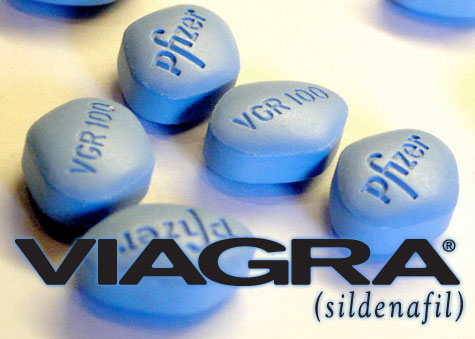Health News – Viagra performs in the bed and also in your heart. Older men like Playboy’s Hugh Hefner and actor Michael Douglas have sung the praises of Viagra, but now scientists say the erectile dysfunction pill is not only good for your sex life — it’s good for your heart.
 In the bedroom, Viagra allows greater blood flow to the penis. But in the heart, the “little blue pill” can prevent heart muscle thickening and early-stage heart failure, according to research published today in the open access journal BMC Medicine.
In the bedroom, Viagra allows greater blood flow to the penis. But in the heart, the “little blue pill” can prevent heart muscle thickening and early-stage heart failure, according to research published today in the open access journal BMC Medicine.
“Large clinical trials are now urgently needed to build on these encouraging findings,” said lead author Dr. Andrea M. Isidori, associate professor of endocrinology at Sapienza University of Rome.
Dosages used for heart ailments are lower than those used for erectile dysfunction, and patients in the study showed few side effects. “Surprisingly, in over 1600 treated subjects, no increased risk of visual disturbance, photosensitivity and ‘blue haze,’ was observed,” he told NBC News.
The active ingredient in Viagra is sildenafil citrate, which is a phosphodiesterase type 5 inhibitor (PDE5i). The inhibitor blocks the enzyme PDE5, which prevents relaxation of smooth muscle tissue.
Researchers analyzed randomized trials that had been published between January 2004 and May 2014, choosing 24 involving mixed populations of patients who were treated with PDE5i or a placebo. PDE5i was given to men who had cardiovascular disorders, but who did not necessarily suffer from sexual impotence, according to Isidori.
The study found that the inhibitor prevented the heart from changing shape in patients suffering from left ventricular hypertrophy, a condition that causes thickening and enlargement of the heart muscle. The drug also improved functioning of the heart in patients with a variety of cardiac conditions, with no effect on blood pressure.
In fact, researchers found that the drug improved efficiency when the heart pumped blood into vessels, along with relaxation between beats. “Very few drugs used in cardiology can actually affect these parameters. For this reason their implications in the treatment and prevention of heart failure are huge.”
However, Isidori notes that because these studies were conducted exclusively on men, the next step should be a larger trial on women.
“I am not surprised and it’s good news,” said Dr. Robert A. Kloner, professor of medicine in the cardiovascular division at the Keck School of Medicine at USC in California. “We can always use a new drug for heart failure.”
Kloner co-authored the book, “Viagra: How the Miracle Drug Happened & What It Can Do for You.” He said this is not the first time, scientists have looked to Viagra for potential heart benefits.
In 1989, British scientists tested sildenafil citrate as a medication to treat high blood pressure and angina. By the 1990s in early trials of the drug, researchers noticed an interesting side effect — an increase in erections.
In 1996, the pharmaceutical company Pfizer patented it as Viagra, and in just two years, doctors had ordered more than 40,000 prescriptions of the new wonder drug. “When the drug first came out there was a big scare — is this going to kill people?” said Dr. Robb D. Kociol, director of the heart failure program at the CardioVascular Institute at Beth Israel Deaconess Medical Center in Boston.
“But in all studies, to the best of my knowledge, it’s not shown any increase in cardiac events in patients who take these drugs,” he said.
Past studies have suggested Viagra and other PDE5 inhibitors may have benefits for heart failure by decreasing pulmonary artery resistance and providing cardio-protective effects in settings with low blood flow, according to Kociol.
“They also improve exercise tolerance in patients with heart failure,” he said. The drug may even reduce the size of a heart attack.
But Kociol said scientists have to “temper” their enthusiasm as more studies are necessary.
“As interesting as this paper is, there have been conflicting results,” he said. “If there is a silver bullet, it remains to be seen.”
Kociol added that researchers also need to “pay more attention” differences between men and women and between racial groups. Some earlier research suggests that drugs like Viagra might interact differently with estrogen, which is known to have naturally protective properties for the heart.
Still, using a sex drug for the heart may raise some eyebrows.
“There is a certain titillation factor when you talk about Viagra — people chuckle,” said Kociol.
And for that reason, today doctors prescribe sildenafil citrate for pulmonary arterial hypertension and Raynaud’s syndrome, but market the same drug by a different name — Revatio.
But study author Isidori also notes that his new research may also help destigmatize the use of sex drugs like Viagra.
“A significant number of subjects suffering from erectile dysfunction are much happier to take pills for heart failure or high blood pressure than to improve their erections,” he said. “This can cause depression and aggravates further their health status and quality of life.”
Columbia University psychologist Judy Kuriansky said there will be one other side effect of Viagra for the heart: a “boost” in sales.
“This way, the man and the woman don’t have to blame his impotence or get embarrassed about his inability to perform,” she told NBC News. “Instead they have an excuse — he has a physical problem.”
BY SUSAN DONALDSON JAMES, NBCNews.com

